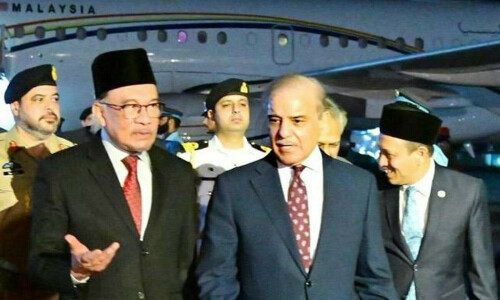ISLAMABAD: The oil industry is resisting implementation of recently introduced specifications for lower manganese content in petrol, saying it required additional investments and time to enable the industry for a phase-out plan.
The Petroleum Division of the Ministry of Energy had introduced fresh specifications for manganese and iron content in petrol in May this year after automakers, particularly Honda Pakistan, complained about choking of some of their engines due to higher manganese in petrol. It emerged later that Pakistan did not have any limits for manganese content in any type of petrol.
After months of deliberations and interaction with all the stakeholders, the notified fresh limits of manganese in the specifications of 90/92/95/97 RON for both imported and locally produced petrol were set at 40mg per litre with effect from Oct 30, 2018, which should further decline to 24mg per litre from Nov 1, 2018 to April 30, 2019.
Consequently, the notification required complete elimination of manganese content in all types of petrol from May 1, 2019. It also required that iron in any form such as related to iron-base octane enhancing additives (e.g. Ferrocene) or factors other than iron base octane enhancing additives is not permitted.
Automakers complain about choking of engines
Attock Refinery Limited (ARL) was the first company that raised serious concerns over the new specifications, calling them “unilateral decision and unrealistic timelines”. It said this would severely impact and restrict the production of motor gasoline from local refineries and put “unnecessary strain on country’s already fast depleting foreign exchange reserves” on imports.
The ARL was joined by Oil Companies Advisory Council (OCAC) — an umbrella forum of majority of the oil marketing and refining companies — when Pakistan Refinery Limited (PRL) and Pak-Arab Refinery (Parco) also raised similar objections.
The OCAC complained that local production of motor gasoline would reduce by 138,000 tonnes per year (11,500 tonnes per month) and simultaneously increase naphtha production by 102,000 tonnes per year (8,500 tonnes per month) that would need to be exported, causing infrastructure constraints.
In a recent letter to the ministry of energy, the OCAC has said that the oil industry had strongly rebutted Honda’s complaint and all the refineries have now expressed serious concern and reservations on the reduction of manganese limits. It said the directive was not implementable because reduction in petrol production and increase in naphtha production would force the refineries to reduce throughput, impacting the production of other petroleum products as well.
These factors would lead to “additional import of Euro II motor gasoline as well as additional exports of surplus naphtha, thereby burdening the already congested and overburdened import infrastructure at Keamari and Port Qasim”.
The OCAC said the refineries had in 2015 added Isomerization units to their configurations while Parco was still in the process to do so to comply with Euro II 87 RON standards on the orders of the government and then ordered to upgrade from 87 RON to 90 and 92 RON and all the three products entailed the use of manganese as an octane booster.
The inclusion of metal content is based on complaint lodged by Honda with respect to issues faced in its Civic VTEC Turbo model; which was a low selling model (approx 100 vehicles per month against an annual car production of 180,000).
The OCAC has called upon the government to continue with limit of 54mg per litre of manganese content till such time that local refineries are able to upgrade their hardware to a configuration that allowed production of petrol with higher RON and consequent reduction in manganese dosage.
Honda Atlas Pakistan in August last year had raised questions over high manganese content which was later supported by the Pakistan Automotive Manufacturers Association though other manufacturers like Pak Suzuki Motor Company Limited and Indus Motor Company did not complain about the fuel specifications.
Honda Atlas pointed out that high manganese content in upgraded 92 RON petrol was causing blocking or choking of catalytic converter and engine knocking due to low octane quality besides causing adverse impact on human health. It said it had suspended assembly of Honda Civic Turbo VTEC over low quality of petrol. The Japan Automobile Manufacturers Association (Jama) also supported Honda’s stance.
From a technical standpoint, manganese compromises engine performance in the long run, chokes catalytic converter of the vehicle and aggravates pollution level by not converting unsafe substances of the exhaust. It has been in use in Pakistan since 2002 when the government moved to single unleaded petrol grade of 87 RON.
A Jama delegation that visited Pakistan in March had claimed that petrol being used in Pakistan invariably contained manganese whose average was 52.6ppm (parts per million); the highest figure being 86ppm. Jama was reported to have proposed of allowing maximum 18ppm and later phasing out metal completely.
This should be followed with specification of 40mg per litre of manganese to enable the refineries to make investments with ultimate target Euro IV and V petrol to coincide with the country’s plan of upgrading the specs over the next five years as also envisaged for the new refineries under the new proposed petroleum policy, the OCAC concluded.
Published in Dawn, July 18th, 2018














































